The alternative scenarios facing the South Caucasus  By Benyamin POGHOSYAN, PhD, Chairman, Center for Political and Economic Strategic Studies By Benyamin POGHOSYAN, PhD, Chairman, Center for Political and Economic Strategic Studies
As the global order continues to morph into a more complex architecture with an array of global and regional powers, the geopolitical future of the South Caucasus hangs in the balance. The tectonic changes in the region of the last four years – the 2020 Nagorno-Karabakh war, the regional implications of the Russian invasion of Ukraine, the military takeover of Nagorno-Karabakh by Azerbaijan, and forced displacement of Armenians, the EU candidate status for Georgia and Georgia’s quest for multi-vector foreign policy including the establishment of strategic partnership with China, the limbo in Armenia–Azerbaijan negotiations, growing assertiveness of Azerbaijan and eventual move of Armenia towards closer cooperation with the EU and the US – all make the situation quite complex.
READ MORE
Trans-Afghan corridor: Uzbekistan's initiative serves the development of a larger region  Yu. Imomova Yu. Imomova
Research fellow
Institute for Prospective International Studies
Under UWED
In recent years, the main principle of the foreign policy of the Republic of Uzbekistan has been the establishment of good neighborly relations, in particular, strengthening economic ties with Afghanistan, providing comprehensive assistance in preventing a humanitarian crisis in this country, implementing the Trans-Afghan railway project, cooperating on the Kosh-Tepa canal project, and other issues. Evidence supporting this perspective is the strategic focus of the Republic of Uzbekistan's development plan for 2022-2026, which emphasizes fostering comprehensive relations with Afghanistan and aiding its socio-economic revitalization.
READ MORE
Representative of Uzbekistan elected to UN Human Rights Committee for the first time in history  On May 29, at the UN headquarters in New York, during the 40th session of the states parties to the International Covenant on Civil and Political Rights (ICCPR), elections were held for nine members of the Human Rights Committee (HRC) for the 2025-2028 term. On May 29, at the UN headquarters in New York, during the 40th session of the states parties to the International Covenant on Civil and Political Rights (ICCPR), elections were held for nine members of the Human Rights Committee (HRC) for the 2025-2028 term.
Representatives from 16 states, including Burundi, Georgia, Egypt, India, Spain, Cameroon, Côte d'Ivoire, Lithuania, Morocco, Paraguay, the Republic of Korea, North Macedonia, Togo, Uzbekistan, Croatia, Ethiopia, and South Africa, competed for the nine seats in the HRC.
READ MORE
Armenia and Azerbaijan Step Up Work on Peace Deal  By Vasif HUSEYNOV, PhD, Head of Department, AIR Center, Adjunct Lecturer, ADA and Khazar Universities, Baku By Vasif HUSEYNOV, PhD, Head of Department, AIR Center, Adjunct Lecturer, ADA and Khazar Universities, Baku
On May 10 and 11, the foreign ministers of Armenia and Azerbaijan, Ararat Mirzoyan and Jeyhun Bayramov, respectively, met for another round of bilateral peace negotiations in Almaty, Kazakhstan. It was the second meeting this year between the two sides after meeting in Berlin on February 28 and 29. The Almaty talks came after the initiation of the delimitation process on the Armenian-Azerbaijani interstate border, with the return of four non-enclave villages to Azerbaijan in April (see EDM, April 17, 23, May 14). The act was celebrated by some as the first instance in the post-Soviet era of a peaceful resolution in the long-standing territorial disputes between the two countries (Azertag.az, April 19; State.gov, April 28). The two parties hope to build on this progress and foster a constructive atmosphere during the talks in Almaty. These developments point to progress in the peace process between Armenia and Azerbaijan, demonstrating both sides’ willingness to pursue improved relations.
READ MORE
Human resources development and management system in new Uzbekistan  The ongoing reform to enhance the democratic state governance system in New Uzbekistan is being implemented under the principle of "The state serves the people, not vice versa." The ongoing reform to enhance the democratic state governance system in New Uzbekistan is being implemented under the principle of "The state serves the people, not vice versa."
Indeed, today, social advancement is inseparable from the consolidation of the state, fostering active societal engagement, shaping positive attitudes of the state servant towards society, serving the people, ensuring individual satisfaction, promoting honesty, and establishing justice, all of which are essential in modernizing social progress. The enactment of the Law "On Public Service" represents another example of the people-oriented policy pursued by our President.
READ MORE
The Role of Foreign Actors in the Armenia-Azerbaijan Conflict 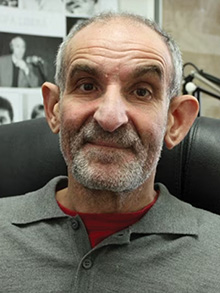 By Eugene KOGAN, Tbilisi-based defence and security expert By Eugene KOGAN, Tbilisi-based defence and security expert
This AIES Focus discusses the four major foreign actors in the conflict between Armenia and Azerbaijan within the time frame of the last 12 to 18 months. While Russia and Turkey are active and directly involved, China and India are implicitly but not explicitly involved in the conflict. As a result, the author tries to present and highlight the divergent and convergent perspectives of the foreign actors in the conflict. One of the major focal points of the conflict relates to what the Azerbaijani call the Zangezur corridor, and the Armenians perceive as a bone of contention. What is perhaps not least important to emphasise is that for Ilham Aliyev, the President of Azerbaijan, the corridor has a crucial role in the transportation link between Turkey, Azerbaijan and the Turkic States. As for Armenia and Iran, its neighbouring country, the establishment of such a corridor is perceived as an existential threat. READ MORE
Tashkent will host the first meeting of Central Asia Regional Expert Council in Rehabilitation and Reintegration of Returnees 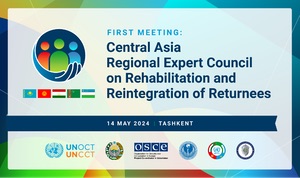 Tashkent/New York/Vienna, May 10, 2024. Tashkent/New York/Vienna, May 10, 2024.
On May 14 this year, the first meeting of Central Asia Regional Expert Council in Rehabilitation and Reintegration of Returnees from armed conflict zones will be held in Tashkent.
The Regional Expert Council is being established on the initiative of the President of Uzbekistan, Mr. Shavkat Mirziyoyev, put forward in March 2022 in Tashkent at the high-level conference “Regional cooperation of the countries of Central Asia under the Joint Action Plan for the implementation UN Global Counter-Terrorism Strategy” and supported by international partners.
READ MORE
Uzbekistan-Tajikistan: commitment to deepening cooperation based on principles of good-neighborliness and mutual trust 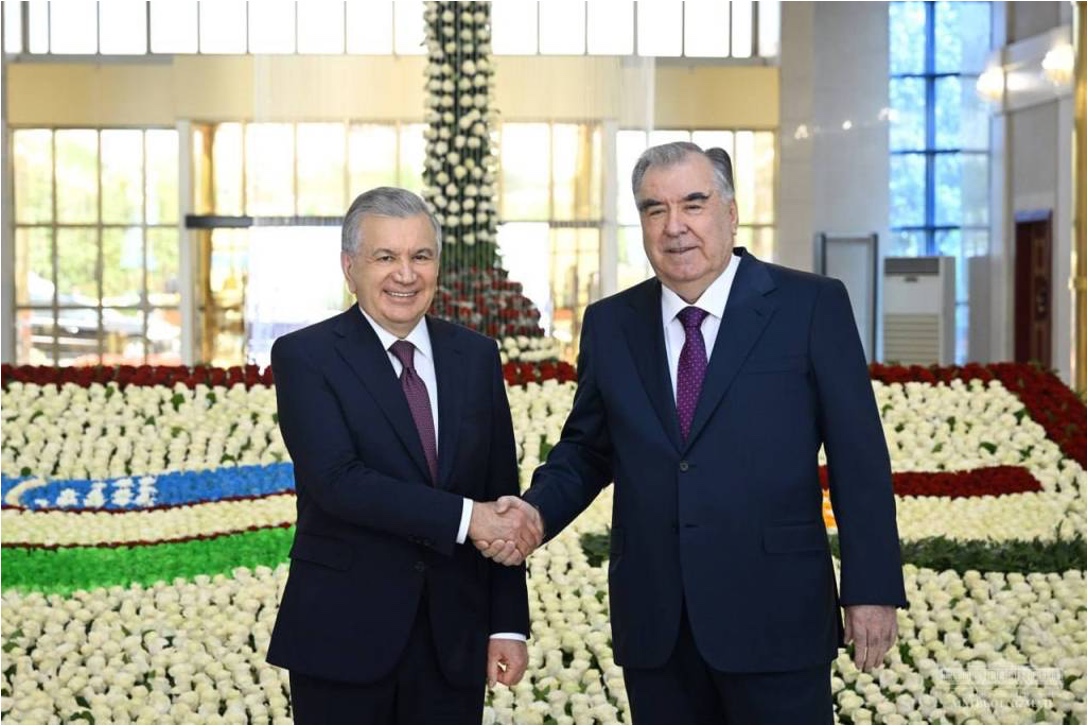 President Shavkat Mirziyoyev will pay a state visit to Tajikistan on April 18-19 at the invitation of President Emomali Rahmon. President Shavkat Mirziyoyev will pay a state visit to Tajikistan on April 18-19 at the invitation of President Emomali Rahmon.
As close neighbors whose peoples are historically and culturally inseparable from each other, Uzbekistan and Tajikistan have brought their relations to the level of strategic partnership and alliance.
The close and constructive political dialog established between the leaders of the two countries, supported by regular bilateral and multilateral meetings, plays a huge role in the development of mutually beneficial and fruitful cooperation.
READ MORE
Geopolitics of the South Caucasus Intensifies  By Vasif HUSEYNOV, PhD, Head of Department, AIR Center, Adjunct Lecturer, ADA and Khazar Universities, Baku By Vasif HUSEYNOV, PhD, Head of Department, AIR Center, Adjunct Lecturer, ADA and Khazar Universities, Baku
From March 17 to 19, Jens Stoltenberg, secretary-general of the North Atlantic Treaty Organization (NATO), embarked on his first tour of the South Caucasus, visiting Georgia, Armenia, and Azerbaijan (NATO, March 19). During this tour, he engaged with each country’s political leadership. In Azerbaijan, he also met with the defence and foreign ministers. Stoltenberg’s visit occurred amid deteriorating relations between Russia and Armenia, an ongoing stalemate in the Armenian-Azerbaijani peace process, and political uncertainty in Georgia before parliamentary elections in October 2024. Each one of these situations points toward the possibility of renewed confrontation and prolonged instability in the South Caucasus.
READ MORE
Uzbekistan will gather folklorists and expect tourists from all over the world in May  On 1-7 May, the ancient and unique land of Surkhandarya will host the traditional international “Boysun Bakhori” (Baysun Spring) folklore festival On 1-7 May, the ancient and unique land of Surkhandarya will host the traditional international “Boysun Bakhori” (Baysun Spring) folklore festival
Preparations for the festival, which will unite bearers, performers and masters of folklore and ethnographic art from all over the world, are being carried out in a completely new spirit. In the modern tourist complex in Bibishirin mahalla, where its main events will take place, all conditions are being created for performances of folklore and ethnographic groups, national sports games and other various performances.
READ MORE
Remember Kazan, for history can repeat itself  By Benyamin POGHOSYAN, PhD, Chairman, Center for Political and Economic Strategic Studies By Benyamin POGHOSYAN, PhD, Chairman, Center for Political and Economic Strategic Studies
The September 2023 military takeover of Nagorno-Karabakh by Azerbaijan was a watershed moment in the conflict. Azerbaijan achieved a decisive victory by force, defying decades-long widespread perception among OSCE Co-chair countries and other actors that the conflict had no military solution. Many expected that the demise of the self-proclaimed Nagorno-Karabakh Republic would pave the way for the Armenia – Azerbaijan peace agreement, thus bringing long-awaited stability to the region. However, it appeared that the issue of Nagorno-Karabakh was only one part of the bigger puzzle of Armenia–Azerbaijan relations. After September 2023, Azerbaijan brought back the narrative of a corridor via Armenia to connect Azerbaijan with Nakhichevan, despite the fact that there was no Lachin corridor anymore connecting Armenia with Nagorno-Karabakh and started to highlight the necessity to change the Armenian constitution and other laws
READ MORE
Armenia–Turkey Normalization Process: A Road to Nowhere?  By Benyamin POGHOSYAN, PhD, Chairman, Center for Political and Economic Strategic Studies By Benyamin POGHOSYAN, PhD, Chairman, Center for Political and Economic Strategic Studies
Armenia and Turkey started a new phase of normalization at the end of 2021, appointing special representatives to draw up recommendations. From the beginning, Turkey stated that the process should be carried out without any preconditions. However, in the last two years Ankara has put forward various preconditions and failed to take steps agreed upon during negotiations.
Armenia–Turkey relations have always been a significant factor impacting regional geopolitics in the South Caucasus. In the period between the first and the second Nagorno-Karabakh wars, many viewed the normalization of Armenia–Turkey relations as having the power to help settle the conflict. Another significant factor influencing the process was the West’s perception that Armenia–Turkey normalization might enable Armenia to reduce its dependence on Russia, as “without fear of Turkey, Armenia will need Russia less.
READ MORE
Cultural Heritage of Karakalpakstan  Karakalpakstan has a unique and rich cultural heritage. It includes ancient architectural and archaeological monuments, unique folklore, performing arts, ceremonies and customs, as well as traditional handicrafts. Karakalpakstan has a unique and rich cultural heritage. It includes ancient architectural and archaeological monuments, unique folklore, performing arts, ceremonies and customs, as well as traditional handicrafts.
The territory of Karakalpakstan is rich with architectural and archaeological monuments, most of which are defensive constructions, including a number of impressive fortresses along the borders of settlements. The majority of the earliest constructions date back to the IV century B.C., when Ancient Khorezm freed itself from the Achaemenid Empire.
READ MORE
Armenia must not ignore developments in the Middle East  By Yeghia TASHJIAN, Beirut-based regional analyst and researcher, columnist, "The Armenian Weekly” By Yeghia TASHJIAN, Beirut-based regional analyst and researcher, columnist, "The Armenian Weekly”
The South Caucasus will be the epicentre of any political or economic friction between Russia and the Middle East. The region, located along the International North-South Transport Corridor, is the most feasible gateway to connect Russia to the Middle East. Russia’s increasing economic and political interaction and involvement in the Middle East will further enhance its dependency on Azerbaijan, due to its bridging location, and Turkey, its partner in addressing upheavals in the Arab region. These two factors may push Russia to pressure Armenia to agree on the implementation of article nine of the November 10, 2020, trilateral statement on unblocking economic and transport communications in the region and deploying Russian border guards to control the transit road connecting Azerbaijan to its Nakhichevan exclave. By doing so, Russia assumes it would increase its leverage on the main actors in the region that will use the transit route connecting Europe to China. The main actor within this context is Turkey, which aims to use the shortest route (compared to the Azerbaijan-Georgia-Turkey route) to trade with the Central Asian republics and beyond.
READ MORE
Two years of war in Ukraine: What should the South Caucasus expect now?  By Benyamin POGHOSYAN, PhD, Chairman, Center for Political and Economic Strategic Studies By Benyamin POGHOSYAN, PhD, Chairman, Center for Political and Economic Strategic Studies
In just one month, the world will mark the second anniversary of the Russian-Ukrainian war. During this period, assessments on the course and possible outcomes of the war underwent significant changes several times. At the end of February 2022, almost everyone was sure that the war would end very quickly with Russia’s victory, bringing a change of government in Ukraine, with President Volodymyr Zelensky replaced by a pro-Russian figure. Already in September 2022, after successful Ukrainian counter-offensives in the Kherson and Kharkiv regions, expectations changed dramatically. This time, many were sure of Russia’s imminent defeat.
READ MORE
Why It Is Important to Diversify Armenia’s Foreign Policy  By Benyamin POGHOSYAN, PhD, Chairman, Center for Political and Economic Strategic Studies By Benyamin POGHOSYAN, PhD, Chairman, Center for Political and Economic Strategic Studies
In recent years, perhaps the most discussed topic by international scholars, experts and politicians is the gradual transformation of the post-Cold War unipolar world order. There are different opinions about the process of transformation, the timing, and the main elements of this newly emerging world order. However, almost everyone agrees on one issue: the unipolar world is gradually becoming history, and before the final formation of the new world order, the next decade will be characterized by instability, conflicts, and economic shocks. Climate change and the ever-increasing role of digital technologies, including artificial intelligence, are additional factors of instability that make it even more difficult to assess, predict and formulate policies based on geopolitical developments in the coming years.
READ MORE
Strained Relations Between Azerbaijan and the West  By Vasif HUSEYNOV, PhD, Head of Department, AIR Center, Adjunct Lecturer, ADA and Khazar Universities, Baku By Vasif HUSEYNOV, PhD, Head of Department, AIR Center, Adjunct Lecturer, ADA and Khazar Universities, Baku
On November 16, Baku cancelled a meeting between the foreign ministers of Armenia and Azerbaijan scheduled to take place on November 20 in Washington. The Azerbaijani Foreign Ministry asserted that, under the current circumstances, it is not possible to proceed with US-mediated peace negotiations. The statement alluded to US Assistant Secretary of State James O’Brien’s comments during “The Future of Nagorno-Karabakh” hearing of the House Foreign Affairs Committee, Subcommittee on Europe on November 15. The hearing highlighted a growing break between Baku and Washington on how to proceed with the peace talks. Azerbaijan has called for “more regional solutions to regional problems,” while the United States and European Union hope to maintain influence over negotiations between Baku and Yerevan.
READ MORE
- December 20, 2023 16:22PM
EU-Azerbaijan Relations Are Important for Both Sides  By Vasif HUSEYNOV, PhD, Head of Department, AIR Center, Adjunct Lecturer, ADA and Khazar Universities, Baku By Vasif HUSEYNOV, PhD, Head of Department, AIR Center, Adjunct Lecturer, ADA and Khazar Universities, Baku
EU-Azerbaijan relations are important for both sides, and the Brussels format of the Armenia-Azerbaijani peace talks, are likewise important to reach negotiated solutions over the remaining unresolved questions between Baku and Yerevan. The reactivation of the Brussels format and the revitalization of the constructive role of the EU in the South Caucasus should happen sooner rather than later. A balanced approach by the EU and its leading member states vis-à-vis the countries of the region is of utmost necessity towards this end.
On 25 October, Toivo Klaar, the EU Special Representative for the South Caucasus, announced that the scheduled meeting between Armenian Prime Minister Nikol Pashinyan and Azerbaijani President Ilham Aliyev with the mediation of the European Council President Charles Michel in Brussels [known as the Brussels format of the Armenia-Azerbaijan peace talks] had been postponed due to scheduling problems. Previously, another EU-brokered summit between these two leaders from the South Caucasus, originally planned to take place on the sidelines of the European Political Community gathering on 5 October, was cancelled by the Azerbaijani side.
READ MORE
- November 28, 2023 07:30AM
The efficiency of organization of measures to ensure public safety based on the principle of “Serving human interests”  Umidjon Qodirov,
Independent researcher of the Academy of the MIA of the Republic of Uzbekistan, cand.of law sciences, associate professor Umidjon Qodirov,
Independent researcher of the Academy of the MIA of the Republic of Uzbekistan, cand.of law sciences, associate professor
Special attention is being paid to ensuring a peaceful and tranquil life of the population and to forming a culture of law-abidingness and public safety as part of the large-scale reforms implemented in our country. In particular, completely new mechanisms and procedures for organizing work in the direction of public safety on the basis of the principle of “Serving the interests of the people” are introduced, and mutual purposeful cooperation of state bodies with public structures is established.
READ MORE
- November 28, 2023 07:25AM
Azerbaijan Advocates for Regional Solutions to Regional Problems in the South Caucasus  By Vasif HUSEYNOV, PhD, Head of Department, AIR Center, Adjunct Lecturer, ADA and Khazar Universities, Baku By Vasif HUSEYNOV, PhD, Head of Department, AIR Center, Adjunct Lecturer, ADA and Khazar Universities, Baku
On October 4, Azerbaijani President Ilham Aliyev cancelled a meeting with Armenian Prime Minister Nikol Pashinyan, European Council President Charles Michel, French President Emmanuel Macron, and German Chancellor Olaf Scholz that was meant to take place at the European Political Community summit in Granada, Spain, on October 5. The Granada summit was a long-awaited occasion in the context of the Armenian-Azerbaijani peace talks, particularly against the backdrop of the collapse of the separatist regime in Azerbaijan’s Karabakh region. Baku has instead voiced its support for more regionally centric negotiating formats for solving disputes in the South Caucasus.
READ MORE
- November 13, 2023 07:03AM
Instead of Dissolving, Artsakh Should Have a Government in Exile  By Yeghia TASHJIAN, Beirut-based regional analyst and researcher, columnist, "The Armenian Weekly” By Yeghia TASHJIAN, Beirut-based regional analyst and researcher, columnist, "The Armenian Weekly”
On September 28, 2023, Artsakh President Samvel Shahramanyan issued a decree announcing that, in the wake of Azerbaijan’s assault on Artsakh, the authorities of Artsakh agreed to dissolve their government by the end of the year and be fully integrated into Azerbaijan.
The decree aimed: to dissolve all state institutions and organizations under their departmental subordination until January 1, 2024, and the Republic of Nagorno-Karabakh (Artsakh) shall cease to exist; the population of Nagorno-Karabakh, including those outside the Republic, after the entry into force of this decree, shall familiarize themselves with the conditions of reintegration presented by the Republic of Azerbaijan in order to make an independent and individual decision on the possibility of staying in Nagorno-Karabakh.
This was perceived as the end of the Artsakh dream. However, this announcement came under the threat of force and ethnic cleansing, placing its legality in question. Moreover, most of the political and military leaders of Artsakh have been arrested by Azerbaijan, amid the passive stance of the Russian peacekeepers and the Armenian government.
READ MORE
Georgian–Turkish Relations and their Impact on Russia 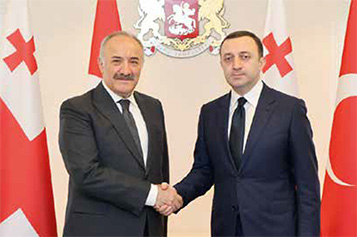 By Eugene KOGAN, Tbilisi-based defence and security expert By Eugene KOGAN, Tbilisi-based defence and security expert
In a nutshell, friendly relations between Georgia and Turkey are not a deterrent against potential Russian aggression against Georgia. Russia can always impose a blockade of Georgia’s Black Sea coast by using its naval assets in Sevastopol, Crimea and Ochamchire in occupied Abkhazia, thereby effectively ‘strangling’ the nascent Georgian Coast Guard. However, despite being somewhat politically marginalised by the West, Turkey remains a crucial partner for Georgia.
Georgian–Turkish relations are in essence cordial but not equal. Georgia’s Prime Minister, Irakli Garibashvili, is viewed as a junior partner in the relationship with President Recep Tayyip Erdoğan. For Georgia, Turkey represents an important partner in the volatile South Caucasus region. At the same time, enjoying friendly relations with Georgia as a transit country for oil, gas and cargo trains from Azerbaijan to Turkey, known as the Baku-Tbilisi-Kars (BTK) railway, is important for Turkey. Moreover, cargo transferred by road from Russia and Azerbaijan via Georgia to Turkey is a basic necessity. Bilateral relations are mainly focused on the economy and, occasionally, the Turkish military donates or sells military equipment to the Georgian Defence Forces (GDF). READ MORE
US-Turkey Relations: Biden Navigates Difficulties with Erdogan 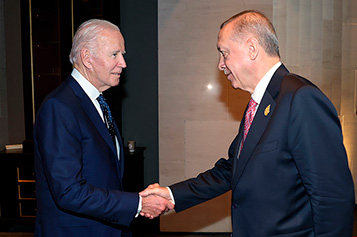 By Eugene KOGAN, Tbilisi-based defence and security expert By Eugene KOGAN, Tbilisi-based defence and security expert
Since the inauguration of President Biden in January 2021, the US administration has kept its relationship with Turkey to a bare minimum. For the Biden administration, the issue of human rights in Turkey remains very much on the agenda while for President Erdoğan, the issue seems to be a lower priority for his administration. Such behaviour infuriates not just Biden administration officials but also members of the House and the Senate. This has resulted in the Turkish president not being invited to Washington. Perhaps the two sides can each be blamed for their current relationship; however, Erdoğan is maintaining his course and appears unbothered by the consequences. For his part, Biden is keeping his cool despite a number of divergences in interests of the US and Turkey. READ MORE
Turkey’s Pivot West Disrupts Relations With Russia
 By Fuad SHAHBAZOV, Baku-based independent regional security and defence analyst By Fuad SHAHBAZOV, Baku-based independent regional security and defence analyst
On July 9, Turkey freed the commanders of the well-known Ukrainian Azov regiment after months of hosting them as a part of a deal with Russia. The fighters surrendered to Russian forces after weeks of brutal siege and resistance at the Azovstal Iron and Steel Works in Mariupol, even after the rest of the city had fallen following Russia’s devastating and relentless assaults. Ankara’s surprise move came during Ukrainian President Volodymyr Zelenskyy’s first official visit to Turkey since the Russian invasion in February 2022 to meet his counterpart, President Recep Tayyip Erdogan, and discuss the possibilities of deepening their strategic partnership. Amid rhetoric on expanding the two countries’ cooperation in defense and security, Erdogan also declared, “Ukraine deserves to be a NATO [North Atlantic Treaty Organization] member”.
READ MORE
|
|